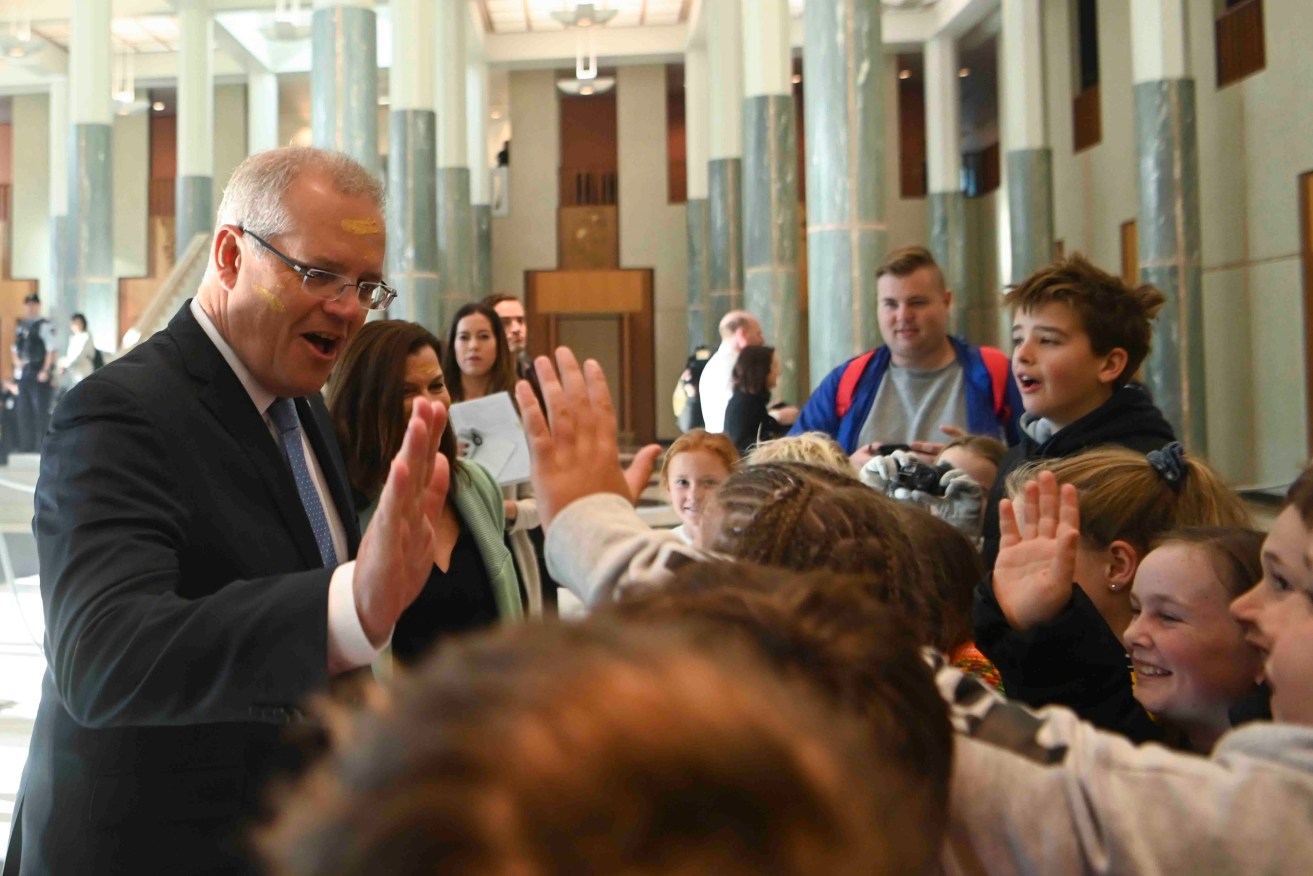Sorry Canberra: SA’s school trips should instead focus on our regions
The State Government needs to rethink the annual pilgrimage of school children to Canberra, and replace it with a program of excursions to South Australia’s agricultural regions, argues Nathan Paine.

Then Prime Minister Scott Morrison speaks to school students visiting Parliament House in Canberra in 2019. Photo: AAP/Lukas Coch
Premier Peter Malinauskas has often said something like: “It is not a case of regional Australia needing Adelaide, it is actually the other way around. Adelaide desperately needs regional Australia…”
And this is true in every sense in primary production, with one exception – our regions need Adelaide’s youth.
We need our young people to connect with agricultural land, understand the origins of our food and fibre, and hopefully see it as a viable career choice.
To do that, we need our youth to visit our regions. We need to inspire and nurture their interests in primary production and, as every schoolteacher knows, excursions and camps are a brilliant way to stimulate curiosity and excitement.
As a parent of five, I have signed my fair share of permission slips, but not one has been to visit either regional South Australia or a primary production farm.
That’s why I am calling on the South Australian Government to start a conversation about ditching the standard school excursion to Parliament House and other sites in Canberra, and instead look at a program that would see our kids venture beyond the bounds of metropolitan Adelaide and visit our amazing regions.
Don’t get me wrong, travelling to our nation’s capital and visiting Parliament House (both old and new), the High Court, the War Memorial, Questacon and the National Portrait Gallery are worthy educational experiences, but our children are becoming less aware of where their food and fibre comes from and it is our duty to expose them to our regional industries.
I see real value in a program where our school kids visit a wide array of amazing farms which will encourage them to understand the concept of paddock to fork or, from my perspective representing the forest industries, trees into timber frames.
It appears we have come full circle and kids of today are utterly disconnected from the land where their food and fibre comes from…
By creating these experiences, it will stimulate children to learn outside the classroom and allow teachers to connect the broad range of STEM subjects and career pathways to our agricultural sector.
I am determined to protect the future of our primary industries by educating the next generation about our value chain and how important it is today and how much more important it will be in the future.
And, like any parent, I do worry that in this field, our kids are more exposed to the teachings of TikTok, such as how to coat a cucumber in sugar to taste like watermelon. Ground-breaking agricultural education, right?
As the world continues to digitise, the process of growing and harvesting food and fibre will remain largely the same but with improved equipment.
I’m sure the pork industry will not welcome the reminder, but I am old enough to remember how the industry was smashed when the movie Babe was released, and a generation of kids worked out that their favourite meal didn’t come from the cold meat section at the local supermarket.
It appears we have come full circle and kids of today are utterly disconnected from the land where their food and fibre comes from, not to mention the efforts of our amazing, hard-working primary producers.
Stimulating an understanding in primary industries and visiting our regions will not only drive interest in primary production, but it will give young minds a break from useless information on TikTok and, more importantly, reconnect primary schools to primary industries.
I look forward to having the conversation with the State Government about implementing such a program and seeing our kids engaging with our primary industries.
Nathan Paine is the CEO of the South Australian Forest Products Association.




